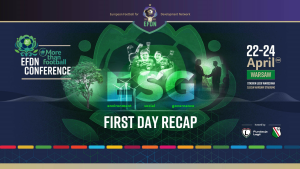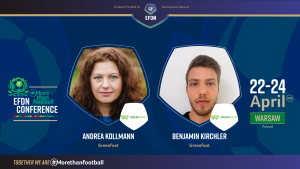Stefano Capellini (Inter Campus) presents the Social Impact of Inter Campus
Stefano Capellini, Project Manager & Communication at Inter Campus, is the next confirmed speaker at our 16th EFDN Conference in Breda on 9 & 10 November 2021.

Stefano Capellini is 34 years old, gained his Master Degree in Economics and Management of Innovation and Technology and has been Manager for Projects and Communication at Inter Campus since 2014.
After a short experience in Capgemini, a French IT Consulting company, he started his professional career in RCS, the main Italian editor. Here he worked as Digital Strategist for three years, dealing with innovative marketing solutions in favor of B2B clients. He also dealt with a specific department dedicated to start-ups which he was very passionate about.
In 2014 he moved to Inter Campus, where he is project manager for Brazil, Colombia, Cuba, Nicaragua, U.S.A. and Venezuela. He is also in charge of communication and partnerships, institutional relations and the Global Compact committee. During these years he had the opportunity to present the project in several universities and at the United Nations.
The presentation will focus on Inter Campus, a social responsibility program that supports social, religious, gender and racial equality in the world, using football as an educational tool, with specific attention to Children’s Rights. Keeping the Right to Play as an overall objective, we had identified secondary level goals according to contextual characteristics, local partners feedbacks, international reports on prevailing necessities: promoting education, fostering peace processes and intercultural dialogue (social, religious, gender), preventing youths from common threats (violence and substance consumption, both drugs and alcohol).
Due to a natural evolution of the project, mixed with the ambition of a punctual evaluation and a gap into the literature, since a couple of years, we decided to evaluate our activities and the effect produced on kids’ life development. With the support of scientific third parties, we started a research process that aims at analyzing not only the output produced by the activity, but also the outcomes according to the objectives, and possibly the impact on the community. Preliminary results are useful as internal benchmark for an improvement process, as dissemination tools for further actors willing to use sport as a social instrument and as concrete data certifying the potential role of football in children’s growing path.



